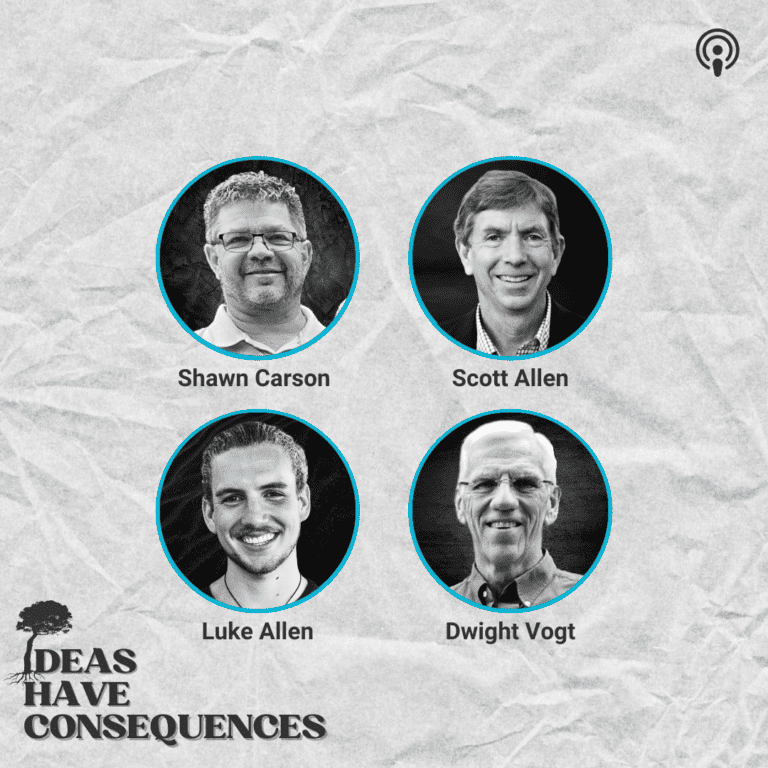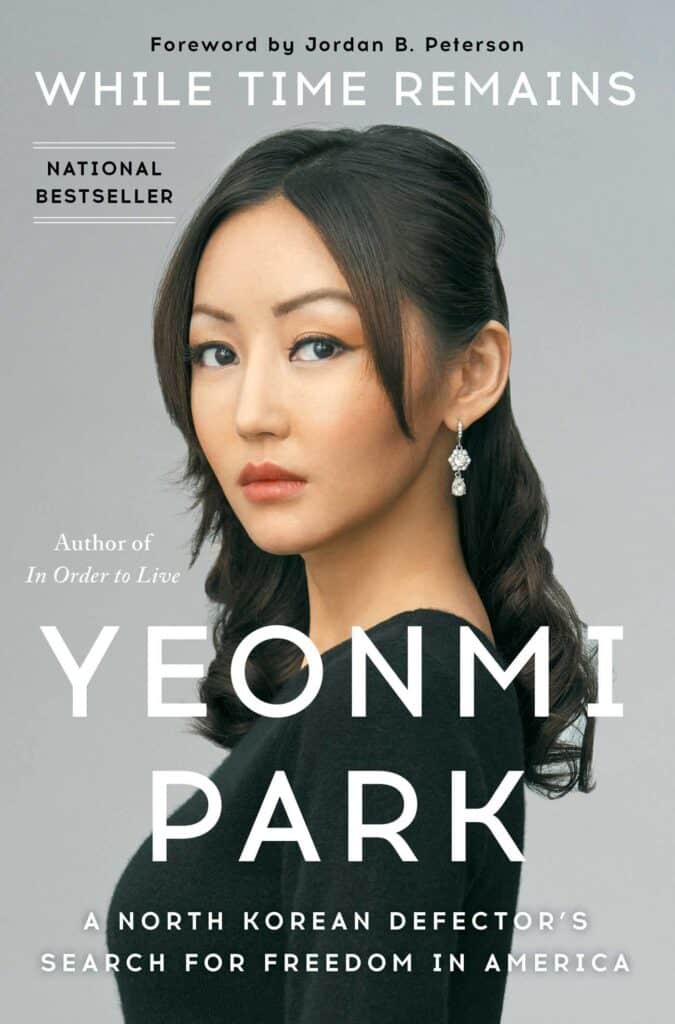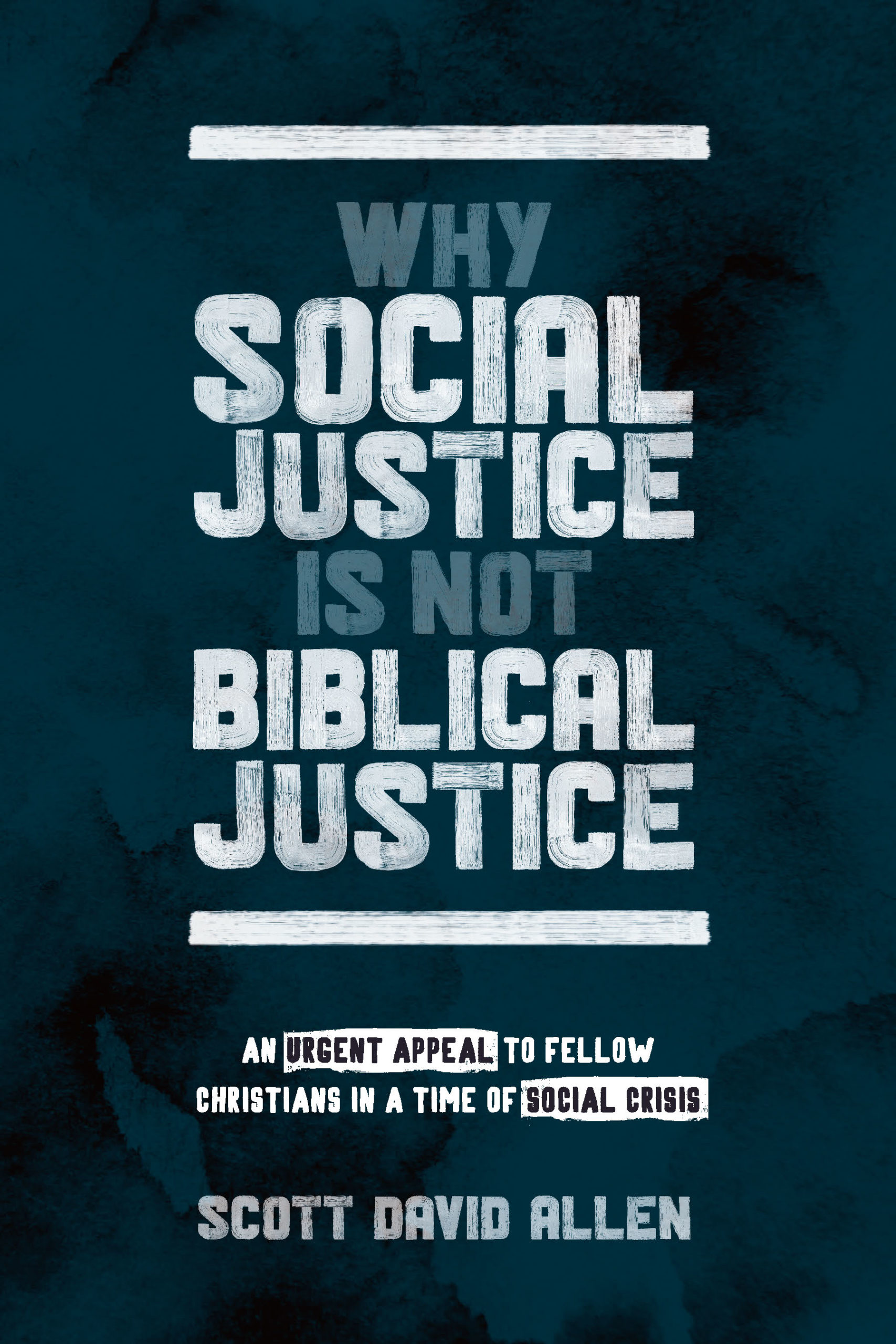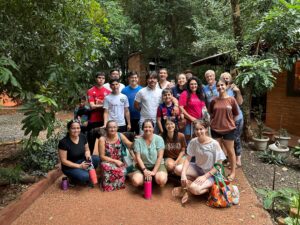At a Glance
What happens when God’s true, good, and beautiful ideas are expelled from a nation? We often think humanity has advanced from our barbaric history of slavery, starvation, and genocide. Yet, even in 2023, there is a country where these crimes against humanity are the norm. In this episode, we use the unbelievable story of Yeomi Park, a North Korean defector, to examine what it looks like when running a country is divorced from the idea of God. False, evil, and ugly ideas destroy and dehumanize, and if Christians are not the hands and feet of God to promote the opposite, our societies can all slide down the slippery slope we witness in North Korea.
What You'll Hear
- Yeonmi Park’s story (1:21)
- What Yeonmi learned when she arrived in the US (32:38)
- Firsthand experience of Marxism (45:54)
- Conclusion and takeaways (50:05)
Yeonmi Park is a North Korean defector and human rights activist whose family fled from North Korea to China in 2007 and settled in South Korea in 2009 before moving to the United States in 2014. In recent years, Park has come to wider global attention following her speech at the 2014 One Young World Summit. Her speech about her experience escaping from North Korea received 50 million views in two days on YouTube. Since then, she’s authored multiple books and appeared in top newspapers, podcasts, and news networks, sharing her experience of living in a modern-day communist state and her perspectives on freedom and humanity since escaping.
Using the link above, you can read the transcript, listen along, and adjust the speed of the podcast while you listen.
If you want to learn more about the woke worldview that is now dominating in the West and in our institutions, this is a fantastic book to read. It gives you incredible perspective on what that worldview is, what's behind it and how it's connected to Marxism.
Scott (1:00:22)

Go Deeper
While Time Remains: A North Korean Defector’s Search for Freedom in America
NATIONAL BESTSELLER
The North Korean defector, human rights advocate, and bestselling author of In Order to Live sounds the alarm on the culture wars, identity politics, and authoritarian tendencies tearing America apart.
After defecting from North Korea, Yeonmi Park found liberty and freedom in America. But she also found a chilling crackdown on self-expression and thought that reminded her of the brutal regime she risked her life to escape. When she spoke out about the mass political indoctrination she saw around her in the United States, Park faced censorship and even death threats.
In While Time Remains, Park sounds the alarm for Americans by highlighting the dangerous hypocrisies, mob tactics, and authoritarian tendencies that speak in the name of wokeness and social justice. No one is spared in her eye-opening account, including the elites who claim to care for the poor and working classes but turn their backs on anyone who dares to think independently.
Park arrived in America eight years ago with no preconceptions, no political aims, and no partisan agenda. With urgency and unique insight, the bestselling author and human rights activist reminds us of the fragility of freedom, and what we must do to preserve it.
In Order to Live: A North Korean Girl’s Journey to Freedom
“I am most grateful for two things: that I was born in North Korea, and that I escaped from North Korea.” – Yeonmi Park
“One of the most harrowing stories I have ever heard – and one of the most inspiring.” – The Bookseller
“Park’s remarkable and inspiring story shines a light on a country whose inhabitants live in misery beyond comprehension. Park’s important memoir showcases the strength of the human spirit and one young woman’s incredible determination to never be hungry again.” —Publishers Weekly
In In Order to Live, Yeonmi Park shines a light not just into the darkest corners of life in North Korea, describing the deprivation and deception she endured and which millions of North Korean people continue to endure to this day, but also onto her own most painful and difficult memories. She tells with bravery and dignity for the first time the story of how she and her mother were betrayed and sold into sexual slavery in China and forced to suffer terrible psychological and physical hardship before they finally made their way to Seoul, South Korea—and to freedom.
Park confronts her past with a startling resilience. In spite of everything, she has never stopped being proud of where she is from, and never stopped striving for a better life. Indeed, today she is a human rights activist working determinedly to bring attention to the oppression taking place in her home country. Park’s testimony is heartbreaking and unimaginable, but never without hope. This is the human spirit at its most indomitable.
Why Social Justice is Not Biblical Justice: An Urgent Appeal to Fellow Christians in a Time of Social Crisis
By Scott David Allen
“Highly recommended!” – Wayne Grudem, PhD, Distinguished Research Professor of Theology and Biblical Studies, Phoenix Seminary
“I urge you to read and share this book immediately and widely!” – Kelly Monroe Kullberg, author of Finding God Beyond Harvard: The Quest for Veritas
“We have long needed a book like this. Every serious Christian—especially every pastor—should read and heed the wisdom it contains.” – Tom Ascol, Senior pastor of Grace Baptist Church (Cape Coral, Florida), President of Founders Ministries
“We are a wounded nation now, and Christians need to bind up wounds and not make new ones. Instead of scorning those who push for social justice, we should recognize that leftist ideologues have twisted the concept of social justice, and some Christians have naively gone along with the distortion. Scott Allen offers an alternative that’s crucial to consider.” – Marvin Olasky, Editor in chief of WORLD magazine
Prepare yourself to defend the truth against the greatest worldview threat of our generation.
In recent years, a set of ideas rooted in postmodernism and neo-Marxist critical theory have merged into a comprehensive worldview. Labeled “social justice” by its advocates, it has radically redefined the popular understanding of justice. It purports to value equality and diversity and to champion the cause of the oppressed.
Yet far too many Christians have little knowledge of this ideology, and consequently, don’t see the danger. Many evangelical leaders confuse ideological social justice with biblical justice. Of course, justice is a deeply biblical idea, but this new ideology is far from biblical.
It is imperative that Christ-followers, tasked with blessing their nations, wake up to the danger, and carefully discern the difference between Biblical justice and its destructive counterfeit.
Why Social Justice is Not Biblical Justice aims to replace confusion with clarity by holding up the counterfeit worldview and the Biblical worldview side-by-side, showing how significantly they differ in their core presuppositions. It challenges Christians to not merely denounce the false worldview, but offer a better alternative—the incomparable Biblical worldview, which shapes cultures marked by genuine justice, mercy, forgiveness, social harmony, and human dignity. Learn more or download the free study guide.
Quotes
- 52:05 “That was the key. You have to destroy the Creator in North Korea.” Dwight
- 53:29 “And as Christians, we shouldn’t hope that other people are going to promote love for us, if we’re not doing it and hope that other people are going to promote freedom if we’re not, because God’s laid those [love and freedom] out in the Bible. And He’s given us the Bible, and written it on our hearts, and we have the Holy Spirit in us and have that clarity to work with Him to promote those to the world. And to create a world that is healthier for everyone. No one wants to see a world that’s like North Korea.” Luke
- 54:00 “Ideas shaped culture. And (North Korea) is such a clear example of that in a short amount of time.” Luke
- 56:23 “Somebody’s always shaping culture. And if it isn’t Christians, based on the reality of God and the reality of what it means to be made in God’s image and the reality and the truthfulness of biblical words like freedom and love and justice, it’s going to be somebody else. If we just sit back and don’t do anything, to create that kind of a culture, then somebody else by default is going to be creating it.” Scott
- 57:08 “Our calling as Christians is to be salt and light is to not just see our friends saved, but to create a culture based on the truth of the Bible that’s life giving and leads to flourishing.” Scott
- 58:04 “Are you tuned in to the importance of biblical definitions? And do you know them? yourself? And are you teaching them to your children or to the other people in your life?” Scott
- 58:38 “Jesus’ prayer that he taught his disciples was thy kingdom come, thy will be done on earth as it is in heaven. And, culture is a reflection of his will being done… but we don’t think in terms of what we’re doing as creating culture but it’s related to the answer to Jesus’ prayer.” Dwight
- 1:00:22 “If you want to learn more about the woke worldview that is now dominating in the West and in our institutions, this is a fantastic book to read. It gives you incredible perspective on what that worldview is, what’s behind it and how it’s connected to Marxism.” Scott









